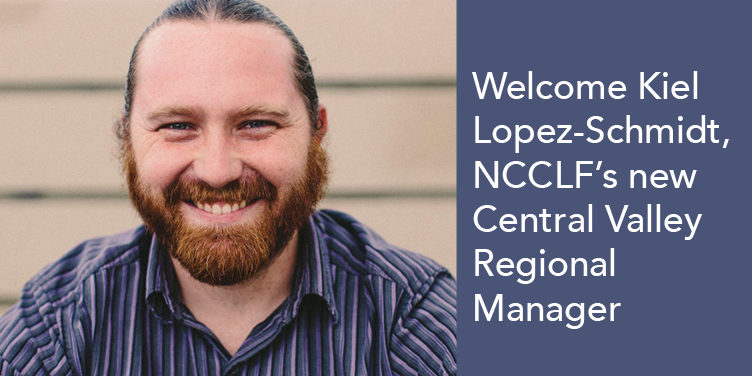This month we welcomed Kiel Lopez-Schmidt, Community Vision’s new Central Valley Regional Manager, to our team. Kiel comes to Community Vision with many years of experience in community-based architecture, food access, and more. Learn more about Kiel below and join us in welcoming him to our team.
What were you doing before joining the team at Community Vision?
For the last four years, I’ve been managing the start-up and growth of Food Commons Fresno. This initiative aims to build up the local food system with an emphasis on community ownership and environmental stewardship.
Prior to that, I spent 10 years working in the architecture industry. I’ve designed a variety of project types including: schools, affordable housing, food businesses, adaptive reuse of historic building and even a spaceship fabrication facility in Mojave.
I’ve been very involved in community efforts related to housing the homeless, feeding the hungry, and building a better city that the communities of Fresno deserve.
What brought you to Community Vision? Tell us about your new role.
I was very attracted by Community Vision making a strong focus of investment in the Central Valley. I’d met many members of the team and saw an opportunity to be mentored by them in my own personal growth while bringing my skills in the architecture and food industries to the Community Vision team to deepen their investments’ impacts in the Valley.
How did you first become involved with food equity work?
I trace my connection to this work back to my childhood. I grew up in a “food desert” neighborhood. Our family struggled to make ends meet after my dad was claimed by the the AIDS epidemic. I believe a big part of how my mom and four brothers emerged from that tragedy was our home garden. We came together as a family to tend our garden year round. Not only was the activity healing, but it helped us stretch our food budget and access the freshest, healthiest foods that we would never be able to purchase. Later, as my education and experiences grew, I realized the crucial roles of urban farming and food sovereignty to solving the aggregation of disparities faced every day by Valley families.
You’re originally from the Fresno. Why do you think it’s important for us to work on issues of equitable food access in the Central Valley?
The Central Valley is a region of contrast. While it is the most productive agricultural region of the country and feeds the world, it is also home to the most food insecure neighborhoods of the country. In the industrialization and globalization of our food system, many Valley communities were left behind. At the same time our community is home to so many smart, creative, passionate, and scrappy people. We have the talent and capacity to make great strides in food access, health, and pathways out of poverty with the strategic interventions and deploying capital at the right time and place.
What drew you back to Fresno? What do you love about the region?
I was walking through a farmers market in Nawalapitiya, Sri Lanka when I decided to move back to Fresno. It was one year since I’d earned my degree in architecture from UC Berkeley. I’d been wanting to deploy my new problem solving skills to help communities. My first development project was with a cooperatively owned coffee village in Nicaragua and my second was working on an orphanage and community center in Sri Lanka after the tsunami and civil war that battered the country.
Back to that farmers market, the beautiful produce displays laid out on rugs on the side of the road and modest farmers sparks a memory of my experiences at the farmers market in downtown Fresno. At that moment I realized so many things about this work in developing countries reminded me of home. There were the negatives such as intense poverty, lack of infrastructure, and health disparities. But there was also the positive such as strong work ethic and vibrant culture and community, especially around food. At that moment, I decided to move back to Fresno and focus my life work on making meaningful impact in the community that had raised me.
What opportunities, challenges, and needs do you see in the Central Valley?
The Central Valley feels at the cusp of major impactful change. Now is the time to double down on the most impactful and transformative organizations and individuals in our community.
What has surprised you most about working with Community Vision so far?
In meeting with team members from all the departments during my orientation, I was struck by how every staff member was connected and passionate about the mission and values of Community Vision. That is rare for the whole team even at admin and finance roles to have so much passion about the work the organization is doing.
What’s the best part of your new job?
Coming from an intense start-up phase of a food business and having a key operational role, I’m very excited to zoom out and think about the broader strategy of developing an equitable ecosystem of food businesses, affordable housing, and nonprofit facilities. On a personal level, my new schedule will allow me to prepare for my wedding in March and get our home garden ready for the summer.






